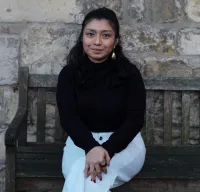FFA BLOG

7 Strategies to Collaborate with Brands and Influencers to Amplify Your Film's Reach
In today’s film industry, partnering with brands and influencers has become an indispensable strategy to maximize a film’s exposure and drive audience engagement. This approach isn’t just for big-budget productions; independent filmmakers can also leverage these methods to level the playing field. By building authentic partnerships and focusing on shared values, even small-scale films can achieve significant reach and resonance with target audiences. Whether through local businesses, niche influencers, or grassroots campaigns, indie creators can use creativity to make up for budgetary constraints. Here are seven effective approaches to harness the power of these collaborations:

1. Identify Shared Values and Audience Overlaps
To create a meaningful partnership, ensure that both the brand and influencer align with your film’s themes, tone, and target audience. For example:
A fitness brand might partner with a film featuring athletic themes.
Eco-conscious influencers could amplify a documentary about sustainability.
For Example: The documentary The Game Changers partnered with athletes and plant-based food brands to reach health-conscious audiences.
Tip: Use audience analytics tools like Hootsuite or BuzzSumo to identify influencers with overlapping demographics.
2. Leverage Exclusive Content
Provide influencers and brands with behind-the-scenes footage, exclusive interviews, or sneak peeks that they can share on their platforms. This creates:
A sense of exclusivity.
Anticipation for the release.
Real-Life Example: For The Hunger Games series, exclusive behind-the-scenes content was shared with YouTube influencers to build excitement among younger audiences.
Action Step: Use teaser campaigns to drip-feed content weeks leading up to your premiere.
3. Co-Create Branded Content
Develop content that combines the strengths of both your film and the partnering brand. Examples include:
A mini-documentary produced by the brand about the film’s journey.
Influencer-hosted watch parties featuring sponsored giveaways.
Marvel Example: Marvel collaborated with Audi for the Avengers franchise, showcasing their cars in the films and creating co-branded advertisements. Learn more
Insight: Audiences respond well to content that feels authentic and organic rather than overtly promotional.
4. Host Collaborative Events
Events such as premieres, red carpets, or fan meetups provide an excellent opportunity for influencers and brands to connect with audiences in real-time. Consider:
Inviting influencers to live-stream their experience.
Offering branded photo booths with props related to the film.
Crazy Rich Example: The Crazy Rich Asians premiere showcased a fusion of high-end fashion and local designers, creating a luxurious red carpet experience that resonated widely across social media platforms and that was shared widely by influencers.
These deliberate fashion choices not only elevated the film's premiere aesthetics but also provided influencers and attendees with captivating content to share, amplifying the film's reach and celebrating Asian designers on a global platform.
Pro Tip: Include hashtags and encourage social sharing to boost online buzz.
5. Design Interactive Campaigns
Interactive campaigns engage audiences and encourage them to share content. Examples include:
Creating a social media challenge tied to your film’s theme.
Partnering with influencers to host a contest with prizes from both the brand and film.
Real-Life Example: The #FrozenFanFest challenge for Frozen II saw influencers and fans recreating iconic scenes, driving immense engagement across platforms.
Case Study: The #ElfYourself campaign for the movie Elf successfully used user-generated content to enhance reach.
6. Leverage Cross-Promotion
Brands and influencers have their own unique platforms. Utilize these channels for cross-promotion by:
Featuring influencers in your film’s marketing materials.
Having brands distribute co-branded merchandise.
Real-Life Example: James Bond: No Time to Die partnered with Omega Watches, leveraging their luxury brand’s platforms for global promotion.
Example: A luxury fashion brand could promote their film-inspired collection through influencer endorsements.
7. Measure and Optimize Performance
Track the success of your collaborations to ensure ROI. Use KPIs such as:
Engagement rates on social media posts.
Traffic generated to ticketing platforms.
Sales conversions from brand-affiliated promotions.
Real-Life Example: Netflix’s partnership with TikTok influencers for Wednesday boosted the show’s popularity by driving viral trends like the "Wednesday Dance."
Independent Filmmakers: Harnessing These Strategies
Independent filmmakers often operate with limited resources, but these strategies are just as applicable to small-budget projects. By focusing on grassroots partnerships and leveraging authentic storytelling, indie creators can form impactful collaborations. For instance, engaging with local influencers or small businesses can help build regional buzz and foster a loyal audience base.
The indie horror film The Babadook gained traction by collaborating with niche horror bloggers and influencers, who championed the film through reviews and social media buzz, turning it into a cult classic.
Amplify Your Reach: Why Brands and Influencers Matter
Incorporating brands and influencers into your film’s marketing strategy is more than a trend—it’s a proven method to amplify reach and deepen audience engagement. Collaborations provide a unique opportunity to tap into established audiences, foster credibility, and create memorable campaigns that resonate with viewers. For independent filmmakers, these strategies can turn limited budgets into creative leverage, ensuring your project reaches its intended audience and beyond.
Whether you’re crafting co-branded content, hosting immersive events, or launching interactive social media challenges, the possibilities are vast. Building authentic connections with the right partners is key to unlocking the full potential of these collaborations. By aligning goals, crafting creative campaigns, and leveraging data-driven insights, your film can achieve unparalleled visibility and impact.
Studio 202 | Mainyard Studios | 280 Mare St | London | E8 1HE | UK
+44 7360 268742
hello@futurefilmacademy.com
www.futurefilmacademy.com

